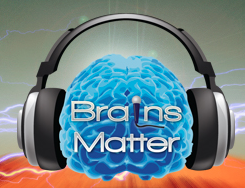Alice Gaby Talks About Linguistics (BSP 41)
/Episode 41 of the Brain Science Podcast is an interview with Alice Gaby, PhD, from the University of California-Berkeley. Dr. Gaby is a linguist who studies the role of language in cognition as well as the aboriginal languages of Australia . In this episode, Dr. Gaby introduces some of the basic areas of linguistics. We also talk about why linguistics is important to understanding brain function, as well as the importance of interdisciplinary communication to advancement in both fields. Dr. Gaby's infectious enthusiasm makes this potentially intimidating subject accessible to everyone.
How to get this episode:
Premium Subscribers now have unlimited access to all old episodes and transcripts.
New episodes of the Brain Science Podcast are always FREE. All episodes posted after January 1, 2013, are free. See the individual show notes for links the audio files.
Listen in your Favorite Audio app: Audible, Amazon music, Pandora, Spotify, YouTube and many more.
Links and References:
Gaby, A. 2006. A Grammar of Kuuk Thaayorre. Unpublished PhD thesis. Melbourne: University of Melbourne. (download PDF)
Language: Its Structure and Use (5th edition) by Edward Finegan: introductory text recommended by Dr. Gaby.
The Language Instinct: How the Mind Creates Language, by Steven Pinker: a good introduction for general readers.
Other scientists mentioned in the interview:
George Lakoff: UC-Berkeley.
Dan I. Slobin: emeritus professor, UC-Berkeley.
Lera Boroditsky of Stanford University.
Stephen Levinson: Max Planck Institute for Psycholinguistics in the Netherlands.
Donations and Subscriptions are appreciated
Send email feedback to Ginger Campbell, MD at brainsciencepodcast@gmail.com










